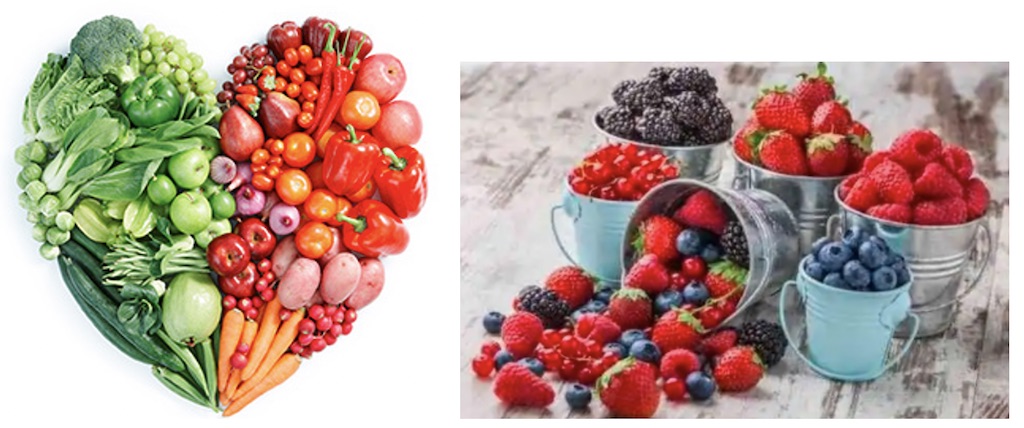What you eat can play both a positive and negative role in managing chronic inflammation. Though Diet alone will not control inflammation but making suitable choices may help prevent it from getting worse.
What Are Natural Anti-Inflammatories?
Natural anti-inflammatories are foods that you can eat to lower your odds of having inflammation. If you have a condition that causes inflammation, it may help to change your eating habits. If you have a condition like rheumatoid arthritis, changing what's on your plate won’t be a magic cure. But an anti-inflammatory diet might lessen the number of flare-ups you have, or it might help take your pain down a few notches.
An anti-inflammatory diet is widely regarded as healthy. Even if it doesn't help with your condition, it can help lower your chances of having other problems.
Anti-Inflammatory Foods
A variety of foods have anti-inflammatory properties. These include foods that are high in antioxidants and polyphenols, such as fruits and vegetables, whole grains, plant-based proteins (like beans and nuts), fatty fish, and fresh herbs and spices.
- Fruits and veggies: Go for variety and lots of color. Research shows that vitamin K-rich leafy greens like spinach and kale reduce inflammation, as do broccoli and cabbage. So does the substance that gives fruits like cherries, raspberries, blueberries, and blackberries their color.
- Whole grains: Oatmeal, brown rice, whole-wheat bread, and other unrefined grains tend to be high in fiber, and fiber also may help with inflammation.
- Beans: They're high in fiber, plus they are loaded with antioxidants and other anti-inflammatory substances.
- Nuts: They have a healthy kind of fat that helps stop inflammation. (Olive oil and avocados are also good sources.) Stick to just a handful of nuts a day, or otherwise the fat and calories will add up.
- Fish: Put it on your plate at least twice a week. Salmon, tuna, mackerel and sardines all have plenty of omega-3 fatty acids, which fight inflammation.
- Herbs and spices: They add antioxidants (along with flavor) to your food.
- Turmeric, found in curry powder, does this with a strong substance called curcumin.
- Ginger, Cinnamon, Cayenne, Black Pepper and Clove are known for their anti-inflammatory properties as well.
- On the other hand, Garlic curbs your body's ability to make things that boost inflammation.
Inflammation resulting from lifestyle factors, such as obesity, smoking, and a sedentary existence can contribute to a range of diseases. These include heart disease, diabetes, rheumatoid arthritis, and Alzheimer’s. Having diabetes, being overweight, having obesity, and eating high levels of saturated fats, trans fats, and refined sugar are all risk factors for chronic inflammation.
The following table lists diet and lifestyle changes that may help reduce chronic inflammation.
| Dietary and lifestyle changes | Reasons |
| Adopt a low glycemic diet | High sugar intake links to chronic inflammation, stroke risk, coronary heart disease risk, and type 2 diabetes risk. Soda, refined carbohydrates, and high fructose corn syrup are foods that can promote inflammation. |
| Try a low-fat diet | Saturated and trans fats worsen inflammation. People should try to reduce or eliminate processed and packaged foods that have trans fats from processed vegetable or seed oil, and baked goods with soybean or corn oil. |
| Eat plenty of fruits and vegetables | These foods are high in antioxidants and other anti-inflammatory compounds that can help reduce the risk of chronic inflammation. |
| Get enough fiber | Researchers have shown an association between high fiber diets and lower inflammatory factors, such as TNF-alpha and interleukin-6. |
| Eat more nuts | Almonds and other nuts may help to lower the risk of cardiovascular disease and diabetes. Cardiovascular diseases, such as atherosclerosis, are pro-inflammatory states. Diabetes is a chronic inflammatory disease. |
| Drink green and black teas | Scientists have associated compounds found in green and black teas with lower C-reactive protein in the blood. |
| Add curcumin to food | A component in turmeric called curcumin improves several inflammatory diseases |
| Add fish oil to the diet Omega-3 | fatty acids positively affect lower levels of inflammatory factors in the blood, such as C-reactive protein, interleukin-6, and TNF-alpha. |
| Eat more mung beans | These beans may have anti-inflammatory properties. |
| Add sesame lignans to the diet | Sesame oil contains sesame lignans, which people associate with decreasing inflammatory factors and improving blood pressure. |
| Exercise regularly | Burning calories through exercise lowers inflammatory factors even if people do not lose weight. |

Inflammatory Foods (Foods to avoid)
Anything highly processed, overly greasy, or super sweet isn’t a good choice for you if you have inflammation. The following foods may increase inflammation for some people, hence should be avoided as much as possible:
- Sugar and high-fructose corn syrup
Sugar is 50% glucose and 50% fructose, while high fructose corn syrup is about 45% glucose and 55% fructose. Sugar stimulates the production of free fatty acids in the liver. When the body digests these free fatty acids, the resulting compounds can trigger inflammatory processes. People with higher sugar diets have more inflammatory markers in their blood, including a marker called C-reactive protein.
Eating a lot of fructose has been linked to obesity, insulin resistance, diabetes, fatty liver disease, cancer, and chronic kidney disease.
- Sugary foods, including desserts, pastries, chocolate, sodas, candies and certain cereals.
- Artificial Trans fats, likely the unhealthiest fats you can eat
In addition to lowering HDL (good) cholesterol, trans fats may impair the function of the endothelial cells lining your arteries, which is a risk factor for heart disease. Foods high in trans fats include French fries and other fried fast food, some varieties of microwave popcorn, most margarines (most margarines contain trans fats, and they are often added to processed foods to extend shelf life). and vegetable shortenings, packaged cakes and cookies, some pastries, and majority of processed foods. Consuming artificial trans fats may increase inflammation and your risk of several diseases, including heart disease.
- Saturated fats, such as in red meat, full fat dairy products, and many rich desserts
- Refined carbohydrates
Refined carbs have had most of their fiber removed. Fiber promotes fullness, improves blood sugar control, and feeds the beneficial bacteria in your gut. Refined carbs also have a higher glycemic index (GI) than unprocessed ones. High GI foods raise blood sugar more rapidly than low GI foods. Refined carbohydrates are found in candy, bread, pasta, pastries, some cereals, cookies, cakes, sugary soft drinks, and all processed foods that contain added sugar or flour.
- Processed meat
Common types of processed meat include sausage, bacon, ham, smoked meat, and beef jerky. Processed meat contains more advanced glycation end products (AGEs) than most other meats. AGEs are formed by cooking meats and some other foods at high temperatures. They are known to cause inflammation. Consuming processed meat is associated with an increased risk of heart disease, diabetes, and stomach and colon cancer.
- Vegetable and seed oils
Certain vegetable oils, such as soybean oil, corn oil, sunflower oil, and vegetable oil promote inflammation due to their very high or excess omega-6 fatty acids that are.
- Excessive Alcohol
Moderate alcohol consumption has been shown to provide some health benefits. Heavy alcohol consumption may increase inflammation and lead to a “leaky gut” that drives inflammation throughout your body. “Leaky gut” is when bacterial toxins move out of the colon and into the body and can drive widespread inflammation that leads to organ damage. To avoid alcohol-related health problems, intake should be limited to two standard drinks per day for men and one for women.
- MSG in prepared Asian foods, soy sauce, and many prepared soups and deli meats
If you are trying to reduce fight inflammation, try to reduce your intake of these foods. You do not have to eliminate them but try to eat them only occasionally. You can lower your risk of chronic inflammation with changes to what you eat.
Learn more how Hi-Bliss Hydrogen Therapy can help reduce Inflammation here : https://hi-bliss.com/services/
Sources:
- https://www.healthline.com/health/osteoarthritis/turmeric-and-anti-inflammatory-herbs
- https://www.healthline.com/nutrition/6-foods-that-cause-inflammation#1.-Sugar-and-high-fructose-corn-syrup
- https://www.healthline.com/health/chronic-inflammation#antiinflammatory-diets
- https://www.webmd.com/diet/anti-inflammatory-diet-road-to-good-health#2



